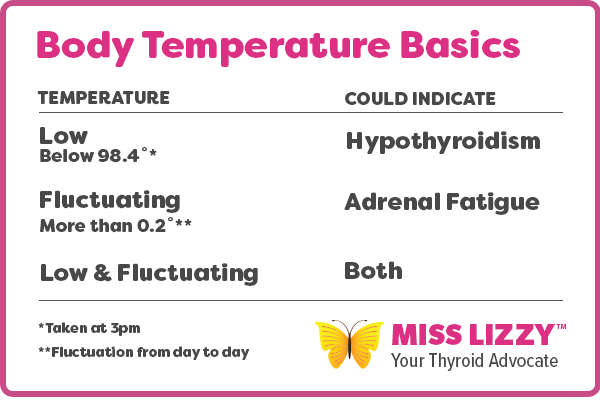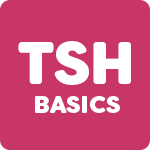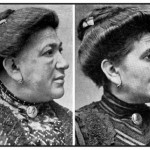Many doctors use body temperature to help assess thyroid function. Many doctors also disregard low body temperature. It’s important to educate yourself on the importance of body temperature. Patients can learn much about their well being simply from track body temperature correctly and regularly. For me, tracking body temp is the cheapest, easiest way to know that my thyroid medicine is working.
According to Dr. Broda Barnes (1), measuring basal body temperature is the most accurate testing method. He explains that a temperature below 97.8 indicates Hypothyroidism, a temperature above 98.2 indicates hyperthyroidism. In addition, when treatment is given for hypothyroidism the body temperature test can be used to monitor the treatment. As low temperatures rise to 98.2, hypothyroid symptoms will disappear.
Dr. Barnes also said “more information can often be brought to the physician with an ordinary thermometer than with all other thyroid test combined”.
Body temperature is such a simple idea. Before getting thyroid treatment my body temperature was very low. At its worst, my temperature was 95.5 degrees. And no this is not normal! Over the years I asked doctors about my low body temperature but was told it was fine. Little did they I was not fine. I felt awful and low body temperature was part of the reason.
How Temperature Effects the Body
What happens when body temperature goes above 98.4-98.6 degrees? We have a fever and typically feel awful. The higher the temperature, the worse we feel. If high temperature doesn’t feel good, consider what happens when body temperature is below normal? It seems logical that we would also feel bad with low body temperature. Patients report feeling tired, sluggish, foggy, cold, and all the other hypothyroid symptoms.
Many patients, myself included, have been told by doctors that low body temperature is fine. But this is not true. Low body temperature can be a very clear sign of hypothyroidism and is the first step in diagnosis.
How to Track Body Temperature
Here are simple instructions from Broda Barnes…. Men, children, and woman (who are past menopause) can take this test anytime. Women who are still in child-bearing years should track temperature on the second or third day of their period.
- Preferably use a glass thermometer orally, under the tongue. These are most accurate.
- Shake down the thermometer the night before, and place on your night table. Take temperature first thing in the morning before getting out of bed
- Record your temperature (use this nice PDF chart from the Wolfe Clinic).
- Repeat for several days to see if the temperature changes. Keep in mind, a big fluctuation is common and could be a sign of adrenal fatigue! One day the temperature might be 97.8 and then next 97.0, this is important information.
- According to Dr. Barnes the morning (basal) temperature should average 97.8 to 98.2 to indicate normal thyroid function.
- Taking afternoon temperature is also important. Take temperature again at 2-3pm and track results.
- A normal afternoon temperature range is 98.4-98.6.
Understanding Body Temperature
Dr. Broda Barnes and Dr. James Wilson explain how to test thyroid and adrenals through body temperature precisely. Checking your body temp at 3pm when the body is at it’s warmest will give you quick insight. Here is a chart explaining what body temperatures could mean:
If you have low body temperature take these results to your doctor! If your doctor doesn’t believe in the body temperature thyroid connection find another doctor.















